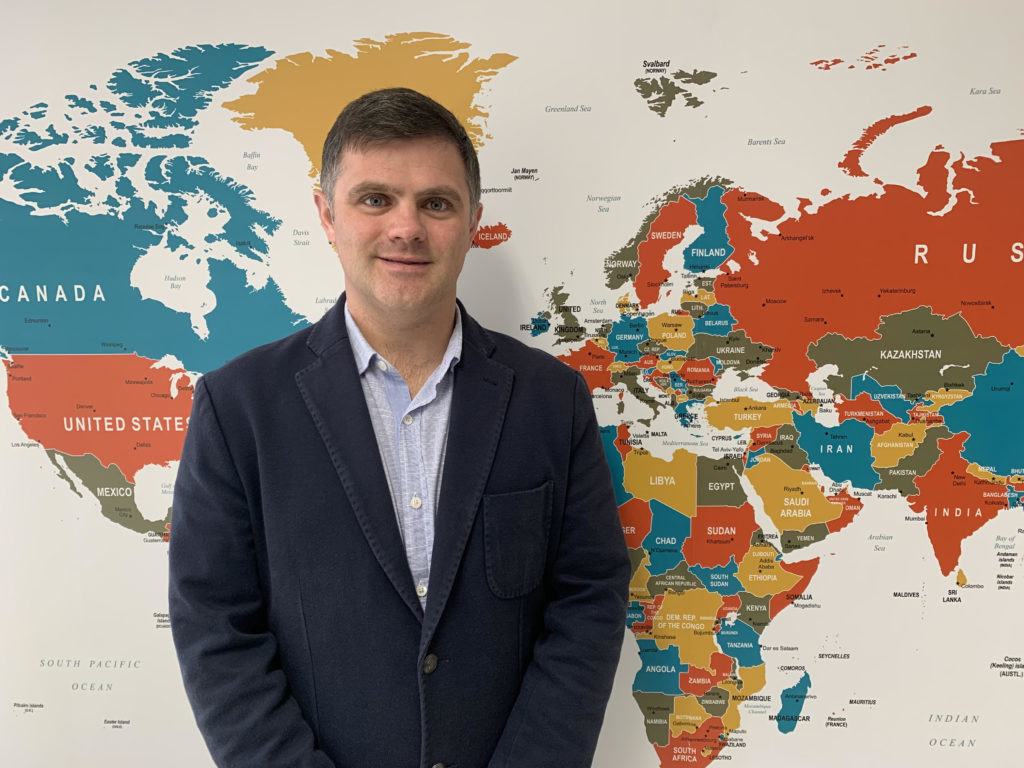São Paulo – Kit International is an animal protein trading firm established in 2011 by Brazilian businessman Frederico Kaefer (pictured above). Garra is a New Zealand trading company founded by Egyptian Ali Mossalem 26 years ago. Two years ago, the two companies formed a joint venture and now work together, expanding their global participation in the trade of beef, poultry, lamb, and pork. Last week, the new name of the merger between the two companies, which now goes by Garra International, was announced. The company intends to multiply its revenue fivefold in ten years, from USD 200 million to USD 1 billion.
Kaefer is the CEO of Garra International. He told ANBA the company has been supplying the Arab market since the beginning, being its main focus. Until the merger, he said Kit sold only beef and poultry, and now with Garra, it also started selling lamb, which the Arabs widely consume. “Things came together because we already had a structured operation and an office in the United Arab Emirates, and Ali had this structure in Egypt, so we complemented each other,” said Kaefer.
Garra International is a member of the Arab Brazilian Chamber of Commerce (ABCC) and operates in Arab countries like Egypt, Saudi Arabia, and the UAE, its main markets, as well as Jordan, Iraq, Kuwait, Bahrain, Qatar, Oman, Palestine, Yemen, and Algeria. “I have already visited almost every country, and every year I go to local shows and Gulfood; I just did not go this year because of the pandemic, but we will next year,” he said. Gulfood is the largest food and beverage show in the Middle East.
The new Garra currently handles 120,000 tons of animal protein every year, selling to around 500 customers in over 60 countries. The trading firm works with several slaughterhouses, from the largest to medium and small ones. In Brazil, mostly beef and poultry are produced, but the company also buys from other countries, such as Uruguay, the United States, Australia, and New Zealand.
According to Kaefer, the Arabs want easy delivery and nationalization of the product and payment terms. “The Arab market is very rigorous in terms of quality, delivery time, and price. It is demanding in every way and a robust market also in terms of relations. We have learned a lot from this loyal market; when you do a job well done, build relationships, trust for them is very important; we make strong ties with them, and we will use all this experience to pursue the new challenges that lie ahead,” he said.
The businessman stated that the trading company differentiates itself by being a facilitator throughout the entire chain; slaughterhouses, customers, distributors, and food processors. “We have a local presence in the main markets, over ten countries. In addition to the main production centers and a solid logistics structure, we provide business intelligence services, customized financial solutions, and facilitate payments. This entire structure, combined with the expertise, allows customers to focus on their main business,” he said.
Garra sells to end customers, small distributors, supermarket chains, processing plants, and foodservice chains. Poultry represents 40% of the trading business; beef, 30%; lamb, 20%; and pork, 10%; approximately. “Our halal producers do not have other products, they do not have swine, so there is no risk of contamination,” guaranteed Kaefer.
He explained that after the merger, managements by protein type were established in the company, in addition to the entire commercial structure by territory, “to ensure sustainable growth and that we continue to do our job well done,” he said.
After several analyzes and researches over the two years of the merger, they decided to consolidate a single brand with a single visual identity presented to the public on July 12.
Garra means ‘small oasis’ in Arabic, and for the Asian public too, while in Latin America, it means strength, according to Kaefer. “Added to the company’s 26 years in the market, the decision to continue with that name was unanimous,” he stated. Ali Mossalem is now a board member of the company.
Translated by Elúsio Brasileiro




